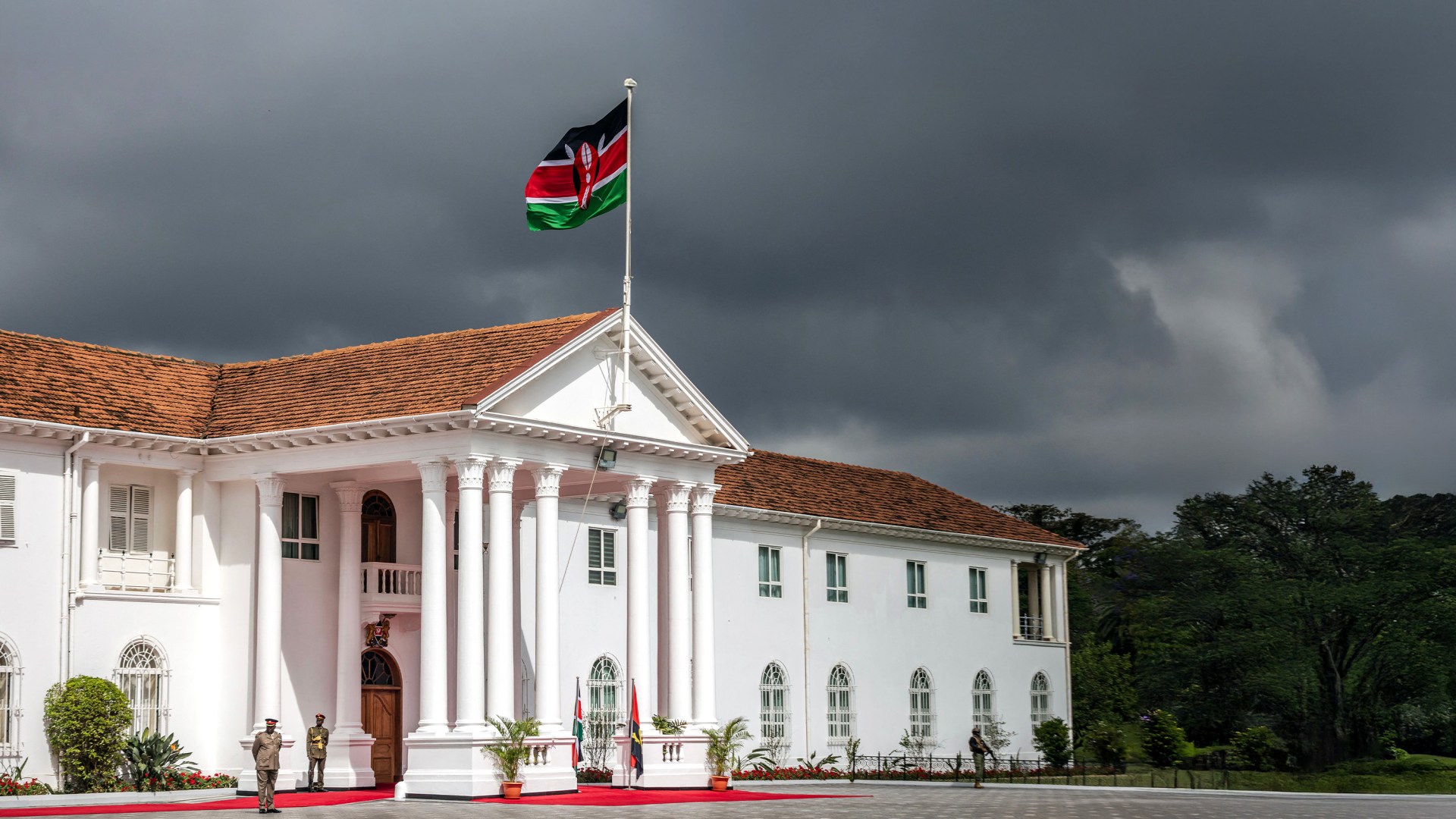A dilapidated tin-walled mabati chapel on the grounds of State House—the presidential residence in Nairobi, Kenya—has become the center of drama between President William Ruto and his critics. The presence of the small temporary chapel had never been controversial.
This month, though, Ruto is defending a plan to pull down the old structure and replace it with an 8,000-seat church, according to media reports. Ruto quoted Haggai 1:4 to guests at State House on July 7: “Is it a time for you yourselves to be living in your paneled houses, while this house remains a ruin?” Ruto promised to build a permanent chapel at State House during his 2022 presidential race.
Some Kenyans have reacted angrily to the building’s proposed 1.2 billion shilling ($9 million USD) price tag. Critics say Ruto should not prioritize building an expensive church while the country suffers from the high cost of living and a struggling public health sector. They blame some of these problems on taxes imposed by Ruto’s government.
Social media commenter Dannish Odongo said, “I’m a Christian but that’s wrong. The state and the church should be separated. Think about when a person who’s not a Christian will be in power. Would you be okay if a Hindu uses state resources to build a temple? Or a traditional believer uses state resources to build their altar?”
Ruto said he is using his own funds, not public funds, to build the church. Some Kenyans doubt the president’s claim. According to the Salaries and Remuneration Commission, the president earns 17.32 million Kenyan shillings ($133,500 USD) in a year. Building the church himself would cost Ruto the equivalent of his salary for 69 years.
Ruto has been cagey about his wealth. But in 2021, he told media he makes 1.5 million shillings ($11,500 USD) daily from his poultry farm, denying accusations of amassing his wealth from corrupt deals.
Fred Matiang’i, former cabinet secretary for the Ministry of Interior, told a parliamentary committee that Ruto owns “18,500 acres of real estate property, two high-end hotels, five helicopters,” and a poultry farm. Media reports also said he owns 400,000 shares of telecom giant Safaricom and a further 8,000 shares of Kenya Airways.
This March, former deputy president Rigathi Gachagua—impeached last year after falling out with Ruto—claimed Ruto had amassed a wealth of 3 to 4 trillion shillings (about $23 to $30 billion USD) since assuming office in 2022. Gachagua did not provide any evidence to support his allegation.
Brian Okoko Njeka, a lawyer and a Christian, said the project “reeks of corruption—a president boasting to build a church of such magnitude with his personal money is a direct insult on the face of poor Kenyans. It is immoral and a mockery to the seat of the presidency.”
Okoko said he sees the president’s decision to build the church as a political move and an opportunity to entice Christians into supporting his political agenda.
But Idris Duba, a worship pastor with the Kenya Assemblies of God in Nairobi, told CT, “For proper context, there was an existing church. He is building a better one. I have no problem with him doing that, because it was already there … and it is not that the money he is using is from the public, because according to what he says, he is using his resources.”
Presidential adviser David Ndii said the church will serve more than 1,000 staff members who live and work in the State House compound, along with their families. The State House has not yet revealed who will run the church or how its services will be conducted.
According to the 2019 Kenya National Bureau of Statistics report, 88 percent of Nairobi’s population of over 4 million identify themselves as Christians. One of the largest church buildings in Nairobi is the Winners Chapel, with a seating capacity of 12,000.
Other African leaders have built expensive churches in their countries, but not at their official residences. Mobutu Sese Seko—who ruled Democratic Republic of the Congo beginning in 1965—built a chapel in 1978 “made of marble, decorated with gold objects and other precious metals.” Rebels destroyed the structure when they deposed Mobutu in 1997.
Nana Akufo-Addo, Ghana’s president from January 2017 to January 2025, began to build a cathedral that drew sharp criticism from citizens about its financing and prioritization over other national needs. The expected cost of $100 million quadrupled due to inflation, though the cathedral remains unfinished.
President Obiang Nguema of Equatorial Guinea, in power since 1979, reportedly built a church with 1,000 seats in Mongomo, his hometown. Critics said he fixated on building a place of worship at the expense of “building schools, hospitals and housing.”
In Kenya, Anglican archbishop Jackson Ole Sapit quickly questioned the construction of the church in State House grounds, saying it violates the constitutional principle of separation of church and state.
Article 8 of Kenya’s Constitution defines Kenya as a secular state with no official religion. A lawyer petitioned the High Court in Nairobi to stop the construction, arguing the president’s action endorses Christianity as a superior or state religion, contrary to what the constitution envisaged. He also argued such a project requires Parliament’s approval.
The High Court sitting in Nairobi has given the attorney general seven days to respond to the petition on Ruto’s behalf.














